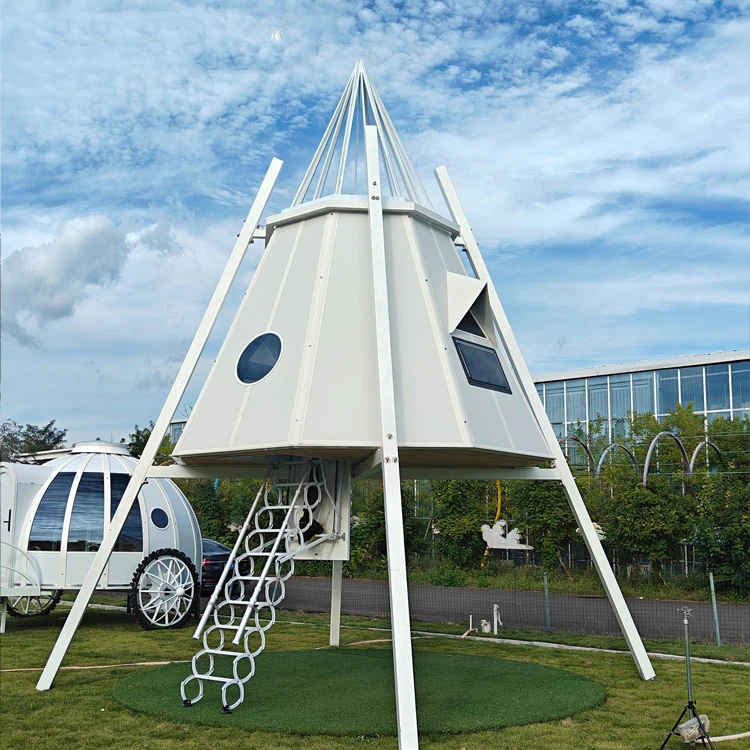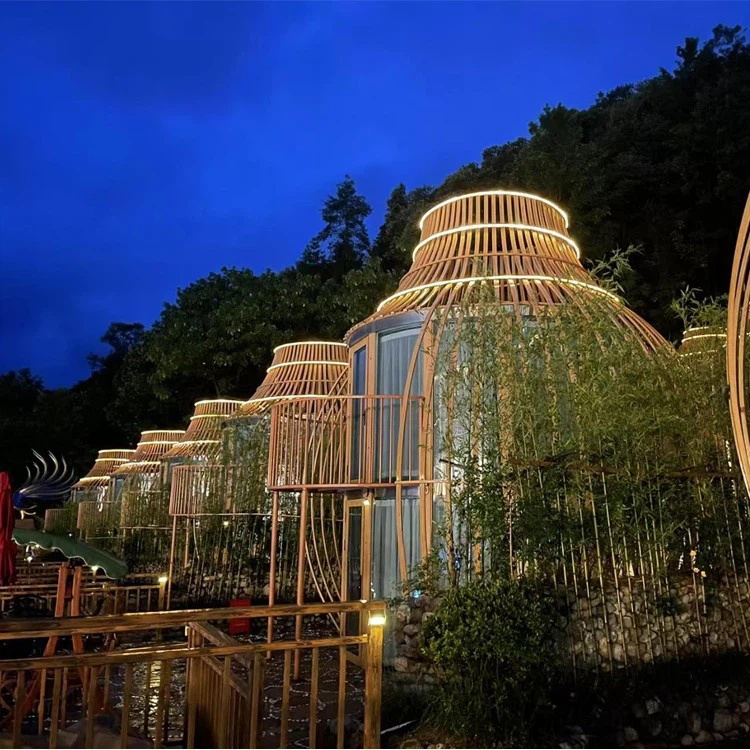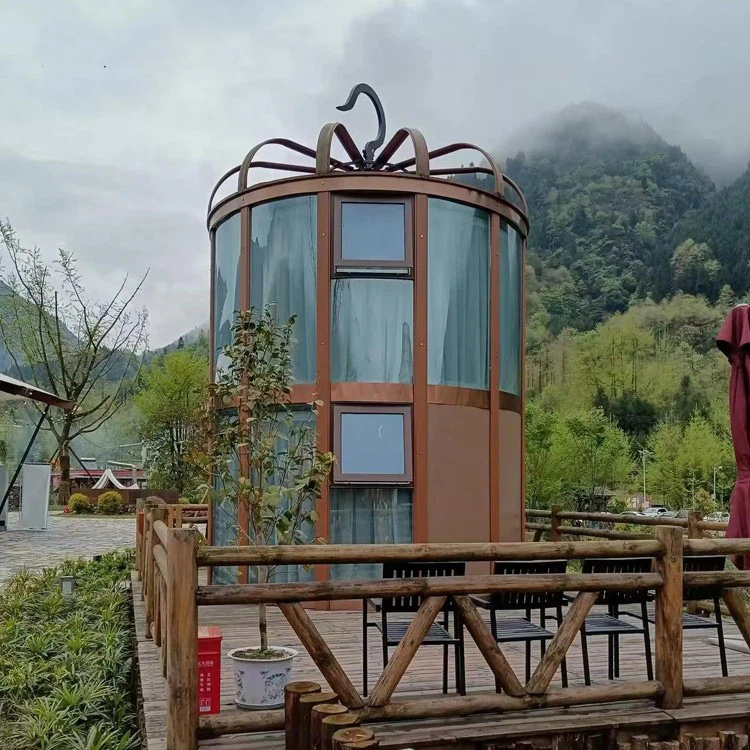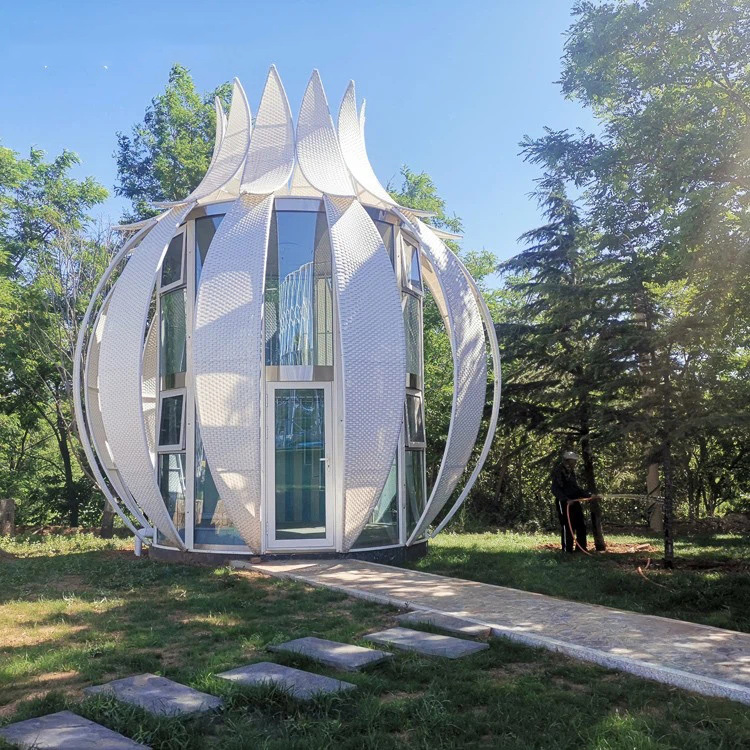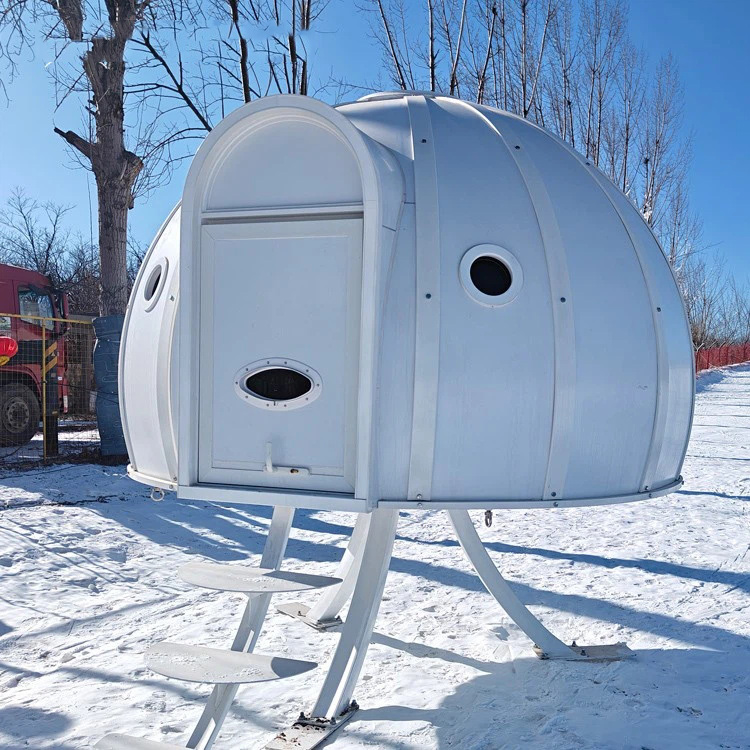Capsule houses have emerged as a unique and innovative solution in the modern world, finding applications in various aspects of our lives.
One of the primary applications of capsule houses is in the field of accommodation. In densely populated urban areas where space is limited and housing costs are high, capsule houses offer a practical and affordable alternative. They can be used as hotels, hostels, or short-term rental accommodations for travelers, students, and young professionals. These compact living spaces are equipped with basic amenities such as a bed, storage space, lighting, and ventilation, providing a comfortable stay for those on a budget.
Capsule houses are also being used in emergency situations and disaster relief efforts. In the aftermath of natural disasters like earthquakes, floods, and hurricanes, capsule houses can be quickly deployed to provide temporary shelter for displaced people. Their lightweight and modular design makes them easy to transport and assemble, allowing for rapid response and relief. Additionally, capsule houses can be equipped with solar panels and other sustainable energy sources, ensuring a reliable source of power in areas where infrastructure has been damaged.

Another application of capsule houses is in the workplace. Some companies are using capsule houses as nap pods or quiet spaces for employees to take a break or focus on work. These mini-retreats offer a peaceful and private environment away from the distractions of the office, helping to improve productivity and employee well-being. Capsule houses can also be used as meeting rooms or collaborative spaces, providing a unique and creative environment for team discussions and brainstorming sessions.
In the healthcare sector, capsule houses can be used as isolation units or temporary medical facilities. During outbreaks of infectious diseases, capsule houses can be set up to isolate patients and prevent the spread of the virus. They can also be used as mobile clinics or testing centers, bringing healthcare services to remote areas or communities in need.

Finally, capsule houses are being explored as a sustainable living option. With their small size and efficient use of resources, capsule houses can reduce energy consumption and waste. They can be designed with eco-friendly materials and features such as rainwater harvesting, composting toilets, and solar power, making them a greener alternative to traditional housing.
In conclusion, capsule houses have a wide range of applications in different fields, from accommodation to emergency relief, workplace productivity, healthcare, and sustainable living. As technology continues to advance and our needs for efficient and flexible living spaces grow, capsule houses are likely to become an increasingly important part of our future.

 0539-8801123/ 8081588
0539-8801123/ 8081588

